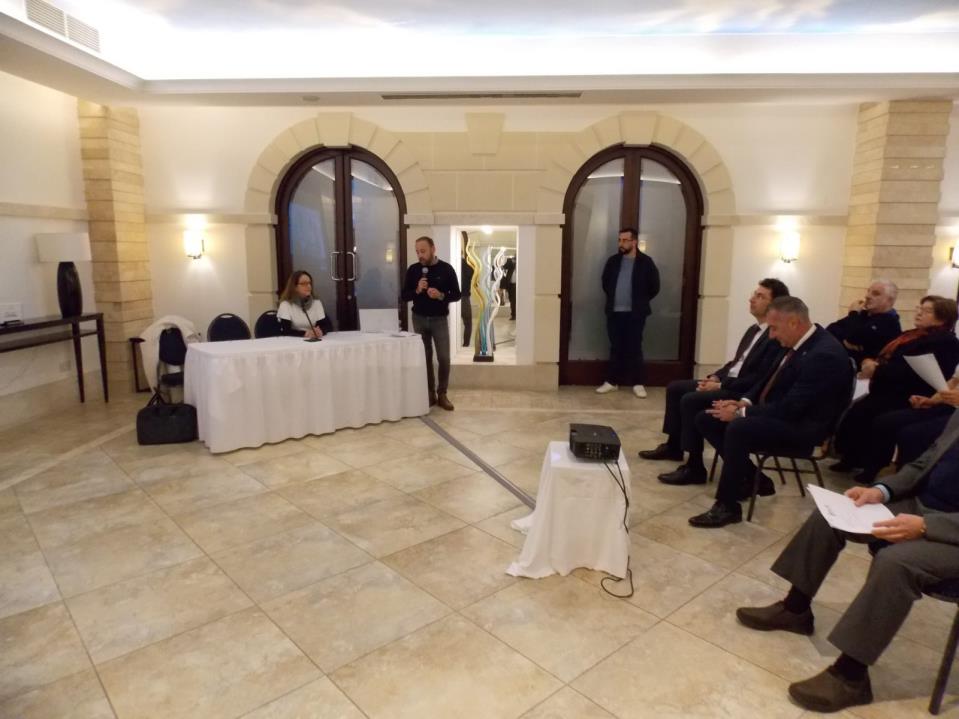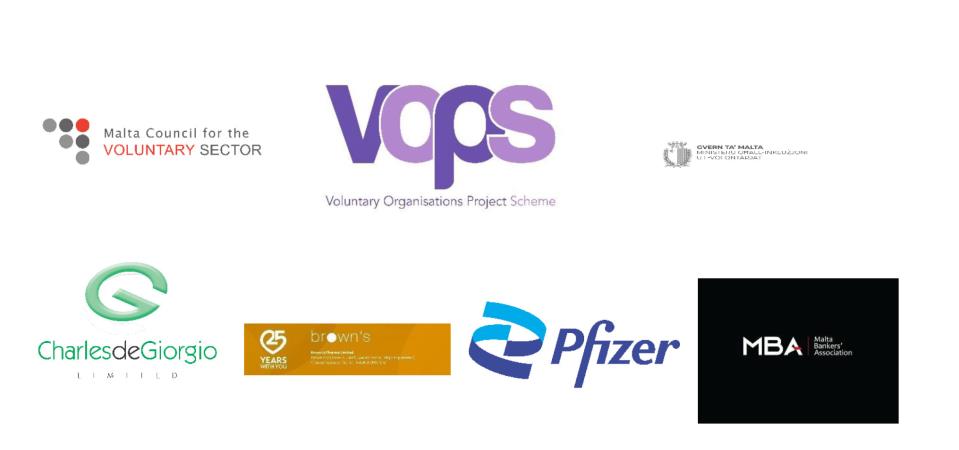Patient Empowerment, Self-Management and Patient-Professional Communication are the three themes being targeted in recent Information videos released by the Malta Health Network.
Gertrude Buttigieg, Chairperson for MHN proudly presented the videos produced by MHN following a need identified by the Network about raising awareness among patients and public in general of simple concepts which can make a different to patients in dealing with their conditions as well as professionals when helping patients. During the launch of the videos the Hon Jo Etienne Abela, Minister for Health and Active Aging, praised the work of the Network by being proactive with such initiatives. He explained on the medical principles of Benevolence, Non- maleficence, and distributive justice which he outlined are the basis for good professional -patient relationship. The audience was also addressed by the Hon Graziella Galea, Spokesperson for Inclusion and Voluntary Sector. She expressed her satisfaction at seeing such a good number of organisations all members within the same network and expressed the importance of working together with one aim - that of having a better life for all patients.

These videos are freely available on social media including YouTube, Facebook and MHN website and all are encouraged to share and disseminate using either the Maltese or English versions. All videos are with subtitles for ease of accessibility.
Patient Empowerment
Have you ever felt that decisions about your healthcare were taken without your full understanding or agreement? That your voice was not heard?
As an empowered patient, you will have control over the management of your condition in your daily life. It is important that you are aware of your rights as a patient. You have the right to be a part of the decisions taken about your health, of having access to clear and understandable information, and the right to dignity and privacy. As a patient, you have the right to be seen and heard.
Patient empowerment also includes activities such as providing health education, encouraging patient involvement in treatment planning and promoting self- management skills.
Self-management
If you suffer from a long-term or chronic condition, self-management can be the key to a better quality of life. Through self-management you learn a set of skills so that you can deal with the challenges of your condition that can arise on a daily basis.
This helps you take care of your health: physical, mental and emotional. Through Self-management you can learn more about your condition through trustworthy sources and with the direction of your professionals. You are encouraged to stay active or exercise where possible, and according to the advice of professionals. And following a healthy diet. You are encouraged to keep a logbook, which helps you be better informed and prepared for your next doctor's visit and following your medication schedule as prescribed by your doctor.
By seeking the support, including by joining patient associations for people with the same condition, where you can share information and experiences. You are highly encouraged to join and actively participate in patient organisations, together you achieve a stronger voice.
Professionals have a key role in helping patients be more empowered and more active in their self-management. Be respectful and non-judgmental when listening to your patients. Ensure that their privacy and dignity is respected and treat every patient as if they are the first ones of the day. Give access to information, which is easily understandable and, if possible, in written form. Make sure they have understood you and ask if they have questions. Guide your patients towards reliable sources of information about their condition. Support and encourage their involvement in decision making.
Professionals have an active role in promoting and teaching the skills needed for self-management, whether it is about sticking to a medication schedule, monitoring the condition, becoming more literate about the subject or following a healthier and more active lifestyle. Encourage your patients to be proactive and to come prepared for their visits, including with any questions they might have.
How one lives with a health condition in very subjective however basic principles can help one live a better life. There are various health advocacy groups in Malta who can help and support individuals depending on their condition. If you are interested in getting to know more visit www.maltahealthnetwork.org where you can access these videos and additional information on work done by MHN and details of all the member organisations.
Always remember that health outcomes will be stronger when you feel that You are being seen and heard.

These videos were produced through 80% funding through the Voluntary Organisations Projects (VOPs scheme) managed by the Malta Council for the Voluntary Sector supported by the Ministry for Inclusion and Voluntary Organisations. Additional support was obtained from The Malta Bankers Association, Brown's Pharma Ltd., Charles Degiorgio Ltd. and Pfizer.